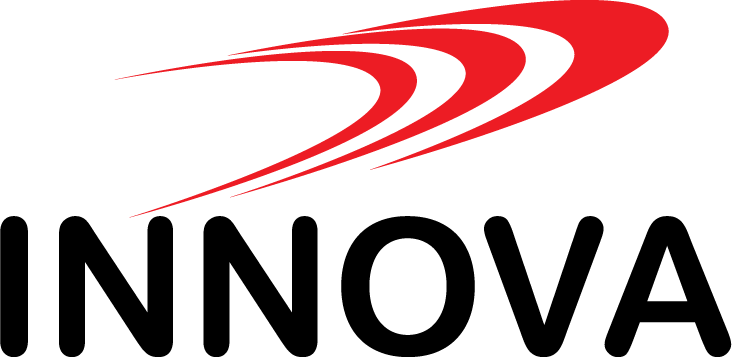Insurance Audits
Table of Contents
Toggle
The word audit sends shivers down the spines of both company owners and individual citizens. The term has a negative connotation, as it is frequently associated with IRS tax audits that might leave you in hot water. On the other hand, annual insurance audits are very different—and can be advantageous to your company. They ensure that you don’t have too much (or too little) insurance coverage.
Depending on your company’s demands, there are many types of insurance. Annually, qualified policies are audited on average. However, they may occur more or less frequently than this. Furthermore, it is critical to keep up with your insurance—you do not want your business insurance to lapse. It can have significant implications, such as termination of coverage, future cost increases, and legal ramifications.
Innova Investment offers insurance audits to help you make sure you’re getting the most out of your insurance and not overpaying. Give us a call and talk to one of our expert professionals.
For More Information,
Contact Innova Investments, LLC
At 843-951-9555 Now!
Why Insurance Companies Conduct Annual Insurance Audits: Everything You Need to Know
What Are Insurance Audits?
Insurance audits confirm that you have paid the exact amount of insurance depending on your risk level—no more, no less. These audits ensure that your premium is adequate and, if not, alter it. The insurance company or a third-party independent auditing firm can undertake annual insurance audits. It’s vital to remember that any information uncovered throughout the insurance auditing process is used purely for insurance rating purposes.
What Are The Implications of Insurance Audits for Your Business?
The insurance auditor examines your records to determine how much risk they insured the previous year and whether that amount is adequate for the next year or needs to be adjusted. Estimates from the prior year are used to calculate insurance. As a result, if your payroll or sales statistics increased dramatically, your insurance company took on more risk than you had paid for in the long run.
Your premiums will almost certainly increase in the following billing cycle if you do not have enough insurance coverage or if your circumstances have changed dramatically in the last year. On the other hand, if you overpaid, you would almost always be given credit on your following term.
What Are the Different Types of Insurance Audits?
Every state has its own rules determining whether businesses require various types of insurance and how much coverage they must have. As a result, insurance audits will vary by insurance type. The following are the different types of insurance audits:
1. Workers’ Compensation Insurance Audits
Every state requires workers’ compensation insurance. Every state has its own rules, but it’s typically used to help employees who have been wounded or gotten ill on the job and cannot work. Therefore, this insurance auditing method is very dependent on the state.
Workers’ compensation insurance is often calculated by multiplying payroll costs by a class modifier. The danger factor comes into play in the second half. Across the board, the purpose of these audits is the same. Auditors examine whether the payroll and class code statistics projected for the policy period appropriately represent the data. It also ensures that subcontractors have their insurance while working for you.
2. General Liability Insurance Audits
One of the most prevalent types of insurance is general liability. In most cases, there is a chance that your firm could be held liable for harming another person or business. If this applies to your company activities, you should consider purchasing general liability insurance to protect yourself.
3. Commercial Liability Audits
General liability insurance is appropriate for most company hazards. It covers any injuries or damage that may occur on your business’s physical premises and any harm caused by your operations. Bodily injury claims, as well as any accompanying medical expenditures, are an example of this. Another expense is the legal fees incurred as a result of slander actions. The cost varies on where you live, what you do for a living, and how long you’ve been in the sector.
4. Liquor Liability Insurance Audits
Liquor liability insurance is a form of policy that protects people who work in the alcohol industry. Those who make, sell or serve beer, wine, or liquor fall under this category. Bars, breweries, vineyards, restaurants, and liquor stores are common examples.
This insurance covers the costs of an intoxicated person causing injury or damage. The policy varies greatly depending on the company and the insurance carrier. The legal necessity for this insurance will, once again, be determined by your state. Even though it isn’t necessary, securing your company is always good.
Because the liability in this profession is so high, annual insurance audits are essential. Therefore, gross sales are commonly used to determine insurance premiums. The total is then divided into gross sales categories, including alcoholic beverages, non-alcoholic beverages, and food sales.
Frequently Asked Questions
What Is The Timeframe Of An Insurance Audit?
From start to finish, audits usually take three months, including four weeks of planning, four weeks of fieldwork, and four weeks of writing the audit report.
What Does An Insurance Premium Audit Entail?
Premium audits are conducted to guarantee that the premiums paid by each company are correct. Though the prospect of annual insurance audits can be daunting, they can be helpful to your company.
In these cases, an auditor examines your records to determine the true extent of your exposure. It includes the correct classification codes (which correspond to risk levels) and rates. These are then compared to your earlier estimates, and adjustments are made as needed. Finally, any remaining funds are applied to your premiums for the next billing cycle.
What Insurance Policies Are Subject To A Premium Audit?
General liability, liquor liability, and workers’ compensation insurance are the most prevalent forms of insurance that are susceptible to a premium audit. These audits unearth information that is utilized to adjust your insurance premium. However, this data can also provide valuable insights into your company’s operations that you may not have considered.
Reliable Insurance Audit Services

Call Innova Investments, LLC
At 843-951-9555 Now!
Innova Investments, LLC
3 Godfrey Place, Unit A Bluffton, SC 29910
(843) 951-9555

